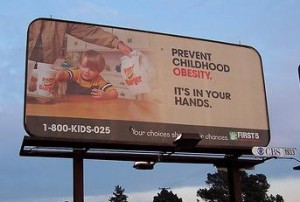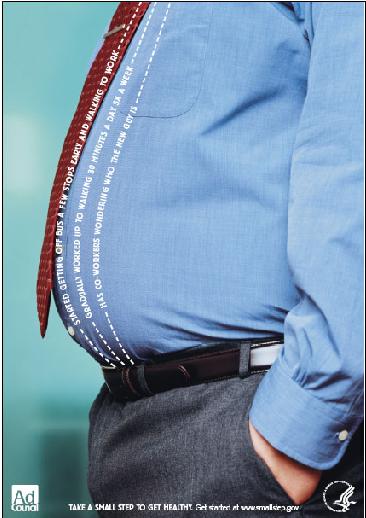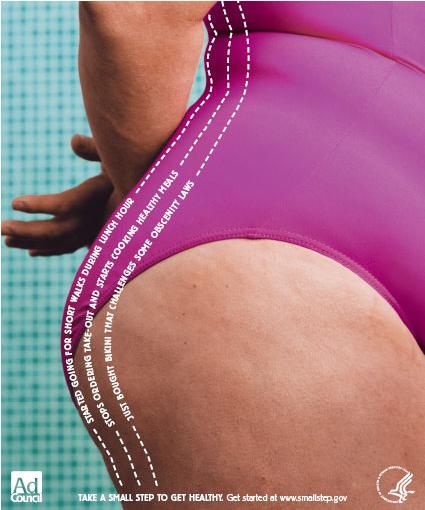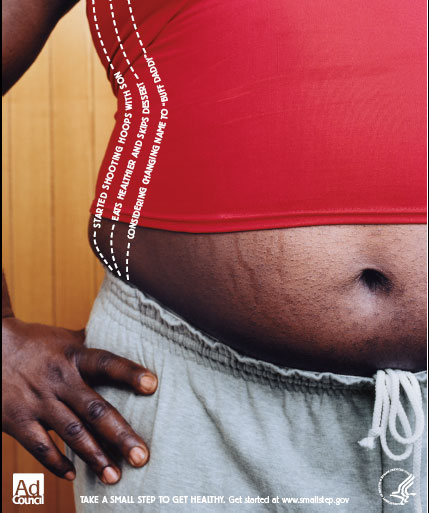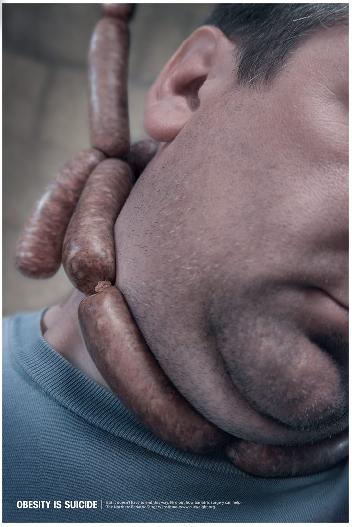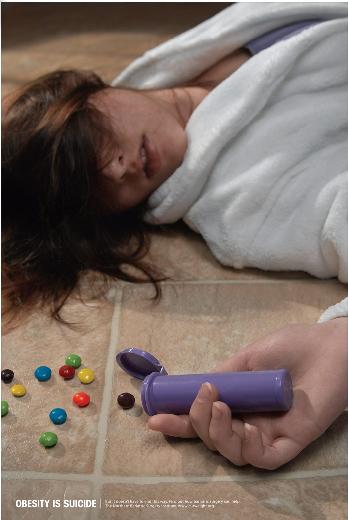Dramatic Relief is another technique for lifestyle change that has been adopted by anti-obesity and healthy living campaigns. It has also been used frequently in anti-smoking campaigns. Dramatic Relief can be used no matter your goal, and is designed to help move you from the Contemplation stage to Determination and towards Action. Dramatic Relief works by creating an experience of increased emotion which is followed by a relief from that emotion if a step towards life change is taken. Dramatic experiences can include anything moving such as testimonies, psychodrama, and media campaigns. These type of ad campaigns use uncomfortable emotions, such as fear, disgust, or guilt, so people are motivated to do something not to feel this same way again.
It is the idea used in “reverse thinspiration,” or when someone puts a picture of themselves at their highest weight on the refrigerator. It’s the reason we call loved ones after watching a sappy movie or go clean the kitchen after reading an article about salmonella. It’s hard to imagine driving your kids through a fast food restaurant and not portioning their servings after driving by one of these billboards:
Media campaigns using the principle of dramatic relief are often surrounded by controversy or labeled guerrilla. It is exactly the power of “negative emotions” that people want to relieve that makes these ads so effective. However, to evoke strong emotions these ads often have to address difficult truths that can be deemed offensive or politically incorrect. The following ads illustrate positive changes that can result from small steps, not only motivating by describing the steps that can be taken to provide dramatic relief:
If you look closely, the ads below also describe what can be done to provide dramatic relief; they are funded by a center that provides gastric bypass surgery. The message is clear; however, these ads may be so controversial that people shut themselves off from the emotions that could be evoked or deny that the message is applicable to their lives. My experience has been that even those who experience suicidal ideation and fantasies of death do not want to consider themselves suicidal. The advertisement for gastric bypass surgery simply allows one more reason for people to reject the message behind these ads.

